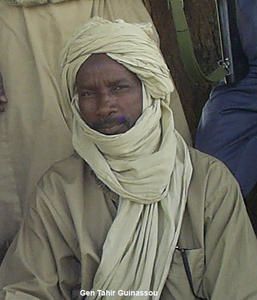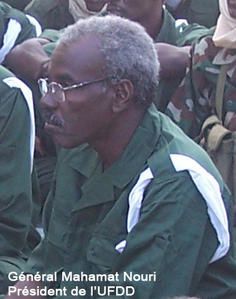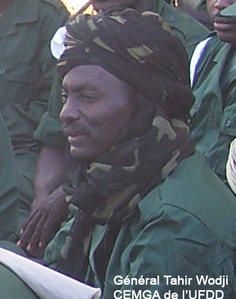René Descartes, often called the father of modern philosophy, attempted to break with the philosophical traditions of his day and start philosophy anew. Rejecting the Aristotelian philosophy of the schools, the authority of tradition and the authority of the senses, he built a philosophical system that included a method of inquiry, a metaphysics, a mechanistic physics and biology, and an account of human psychology intended to ground an ethics. Descartes was also important as one of the founders of the new analytic geometry, which combines geometry and algebra, and whose certainty provided a kind of model for the rest of his philosophy.
After an education in the scholastic and humanistic traditions, Descartes’ earliest work was mostly in mathematics and mathematical physics, in which his most important achievements were his analytical geometry and his discovery of the law of refraction in optics. In this early period he also wrote his unfinished treatise on method, theRules for the Direction of the Mind , which set out a procedure for investigating nature, based on the reduction of complex problems to simpler ones solvable by direct intuition. From these intuitively established foundations, Descartes tried to show how one could then attain the solution of the problems originally posed.
Descartes abandoned these methodological studies by 1628 or 1629, turning first to metaphysics, and soon afterwards to an orderly exposition of his physics and biology inThe World. But this work was overtly Copernican in its cosmology, and whenGalileowas condemned in 1633, Descartes withdrewThe World from publication; it appeared only after his death.
Descartes’ mature philosophy began to appear in 1637 with the publication of a single volume containing theGeometry,DioptricsandMeteors, three essays in which he presented some of his most notable scientific results, preceded by theDiscourse on the Method, a semi-autobiographical introduction that outlined his approach to philosophy and the full system into which the specific results fit. In the years following, he published a series of writings in which he set out his system in a more orderly way, beginning with its metaphysical foundations in theMeditations(1641), adding his physics in thePrinciples of Philosophy(1644), and offering a sketch of the psychology and moral philosophy in thePassions of the Soul (1649).
In our youth, Descartes held, we acquire many prejudices which interfere with the proper use of our reason. Consequently, later we must reject everything we believe and start anew. Hence theMeditations begins with a series of arguments intended to cast doubt upon everything formerly believed, and culminating in the hypothesis of an all-deceiving evil genius, a device to keep former beliefs from returning. The rebuilding of the world begins with the discovery of the self through the ‘Cogito Argument’ (‘I am thinking, therefore I exist’) – a self known only as a thinking thing, and known independently of the senses. Within this thinking self, Descartes discovers an idea of God, an idea of something so perfect that it could not have been caused in us by anything with less perfection than God Himself. From this he concluded that God must exist which, in turn, guarantees that reason can be trusted. Since we are made in such a way that we cannot help holding certain beliefs (the so-called ‘clear and distinct’ perceptions), God would be a deceiver, and thus imperfect, if such beliefs were wrong; any mistakes must be due to our own misuse of reason. This is Descartes’ famous epistemological principle of clear and distinct perception. This central argument in Descartes’ philosophy, however, is threatened with circularity – the Cartesian Circle – since the arguments that establish the trustworthiness of reason (the Cogito Argument and the argument for the existence of God) themselves seem to depend on the trustworthiness of reason.
Also central to Descartes’ metaphysics was the distinction between mind and body. Since the clear and distinct ideas of mind and body are entirely separate, God can create them apart from one another. Therefore, they are distinct substances. The mind is a substance whose essence is thought alone, and hence exists entirely outside geometric categories, including place. Body is a substance whose essence is extension alone, a geometric object without even sensory qualities like colour or taste, which exist only in the perceiving mind. We know that such bodies exist as the causes of sensation: God has given us a great propensity to believe that our sensations come to us from external bodies, and no means to correct that propensity; hence, he would be a deceiver if we were mistaken. But Descartes also held that the mind and body are closely united with one another; sensation and other feelings, such as hunger and pain, arise from this union. Sensations cannot inform us about the real nature of things, but they can be reliable as sources of knowledge useful to maintaining the mind and body unity. While many of Descartes’ contemporaries found it difficult to understand how mind and body can relate to one another, Descartes took it as a simple fact of experience that they do. His account of the passions is an account of how this connection leads us to feelings like wonder, love, hatred, desire, joy and sadness, from which all other passions derive. Understanding these passions helps us to control them, which was a central aim of morality for Descartes.
Descartes’ account of body as extended substance led to a physics as well. Because to be extended is to be a body, there can be no empty space. Furthermore, since all body is of the same nature, all differences between bodies are to be explained in terms of the size, shape and motion of their component parts, and in terms of the laws of motion that they obey. Descartes attempted to derive these laws from the way in which God, in his constancy, conserves the world at every moment. In these mechanistic terms, Descartes attempted to explain a wide variety of features of the world, from the formation of planetary systems out of an initial chaos, to magnetism, to the vital functions of animals, which he considered to be mere machines.
Descartes never finished working out his ambitious programme in full detail. Though he published the metaphysics and the general portion of his physics, the physical explanation of specific phenomena, especially biological, remained unfinished, as did his moral theory. Despite this, however, Descartes’ programme had an enormous influence on the philosophy that followed, both within the substantial group that identified themselves as his followers, and outside.
GARBER, DANIEL (1998, 2003). Descartes, René. In E. Craig (Ed.), Routledge Encyclopedia of Philosophy. London: Routledge. Retrieved December 18, 2011, from http://www.rep.routledge.com/article/DA026



 Gen Tahir Guinassou:
Gen Tahir Guinassou:



 CEMGA Gen Tahir Wodji
CEMGA Gen Tahir Wodji CEMGA Adj UFDD Soumaine Boloki
CEMGA Adj UFDD Soumaine Boloki






